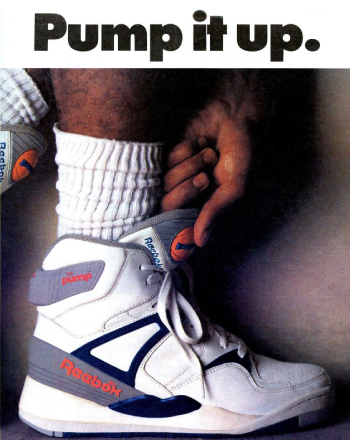
Search
1960 United States presidential election in North Carolina

The 1960 United States presidential election in North Carolina took place on November 8, 1960, as part of the 1960 United States presidential election. North Carolina voters chose 14 representatives, or electors, to the Electoral College, who voted for president and vice president.
As a former Confederate state, North Carolina had a history of Jim Crow laws, disfranchisement of its African-American population and dominance of the Democratic Party in state politics. However, unlike the Deep South, the Republican Party always had sufficient historic Unionist white support from the mountains and northwestern Piedmont to gain minimally one-quarter and usually one-third of the statewide vote in general elections, where turnout was higher than elsewhere in the former Confederacy due substantially to the state's early abolition of the poll tax in 1920. Like Virginia, Tennessee and Oklahoma, the relative strength of Republican opposition meant that North Carolina never had statewide white primaries, although certain counties did use a white primary until it was banned by Smith v. Allwright.
Following the banning of white primaries by the Supreme Court, North Carolina in 1948 offered less support to the Dixiecrat bolt than any other former Confederate state, due to the economic liberalism of its Black Belt and solid Democratic party discipline due to consistent Republican opposition. Although there was little satisfaction with Harry S. Truman during his second term, the loyalty of the white voters of the state’s Black Belt and the previously anti-Al Smith Outer Banks meant that unlike Texas, Florida and Virginia, urban middle-class Republican voting was inadequate to carry North Carolina for Dwight D. Eisenhower in either 1952 or 1956. Aiding this failure was that the growing urban black electorate, which had increased from under ten percent of voting-age blacks in 1940 to about a quarter in 1956, was much more favourable to Adlai Stevenson II than in other former Confederate states. In the 1958 midterm elections, Republicans in the state legislature were reduced to their lowest ever representation of five seats, although Charles R. Jonas did hold the Tenth District.
North Carolina would largely escape the overt “Massive Resistance” seen in neighbouring Virginia, and four of its congressmen did not sign the Southern Manifesto. Nonetheless, although the Greensboro school board voted 6–1 to desegregate within a day of Brown, no serious desegregation would occur until well into the 1960s, while two non-signers would be challenged and defeated in 1956 primaries. With the likely nomination of Massachusetts Senator John F. Kennedy to counter Eisenhower’s Catholic appeal in the Northeast, speculation emerged that the anti-Catholicism that turned North Carolina Republican in 1928 would again become a powerful force, and many Baptist pastors in the state did raise the religious issue.
During 1960, the state would be affected by the Greensboro sit-ins. Dissatisfaction with the Democratic Party on civil rights, as well as support for him amongst certain anti-Catholic groups, meant that incumbent vice-president and Republican nominee Richard Nixon gained an enthusiastic reception when touring the state early in his fall campaign. Polls in mid-October however favoured Kennedy, and they continued to do so in the fourth week of the month.
Results
Results by county
Analysis
North Carolina was won by Kennedy (D–Massachusetts), running with Senator Lyndon B. Johnson, with 52.11 percent of the popular vote against Nixon’s 47.89 percent.
Despite suspected hostility the state towards Kennedy’s Catholicism, only in the traditionally Democratic parts of Appalachia and the previously extremely solid eastern part of the state did Kennedy decline upon Adlai Stevenson II’s 1956 performance, whilst Kennedy even gained in the Outer Banks where 1928 anti-Catholicism had been strongest. At the same time, the collapse of a long-standing political machine during the 1950s meant that Madison County, previously one of the strongest Republican bastions in the state, voted Democratic for the first time since 1876, whilst nearby Haywood County and Jackson County were the only counties to flip from Stevenson to Nixon.
Kennedy was helped crucially by the increasing black voter registration that was totalling almost a third of the voting-age black population at the time of the election: it is estimated he received about seven-eighths of black voters in the urban precincts where they were concentrated, producing a substantial part of his sixty thousand vote statewide majority.
Notes
References
Text submitted to CC-BY-SA license. Source: 1960 United States presidential election in North Carolina by Wikipedia (Historical)
Articles connexes
- 2020 United States presidential election in North Carolina
- 2024 United States presidential election in North Carolina
- 2016 United States presidential election in North Carolina
- United States presidential elections in North Carolina
- 2004 United States presidential election in North Carolina
- 1960 United States presidential election
- 2012 United States presidential election in North Carolina
- 1960 United States presidential debates
- 1968 United States presidential election in North Carolina
- 1964 United States presidential election in North Carolina
- 2000 United States presidential election in North Carolina
- 1984 United States presidential election in North Carolina
- 1992 United States presidential election in North Carolina
- 2008 United States presidential election in North Carolina
- 1880 United States presidential election in North Carolina
- 1976 United States presidential election in North Carolina
- 1996 United States presidential election in North Carolina
- 2020 United States presidential election in South Carolina
- 1988 United States presidential election in North Carolina
- 1884 United States presidential election in North Carolina
Owlapps.net - since 2012 - Les chouettes applications du hibou



